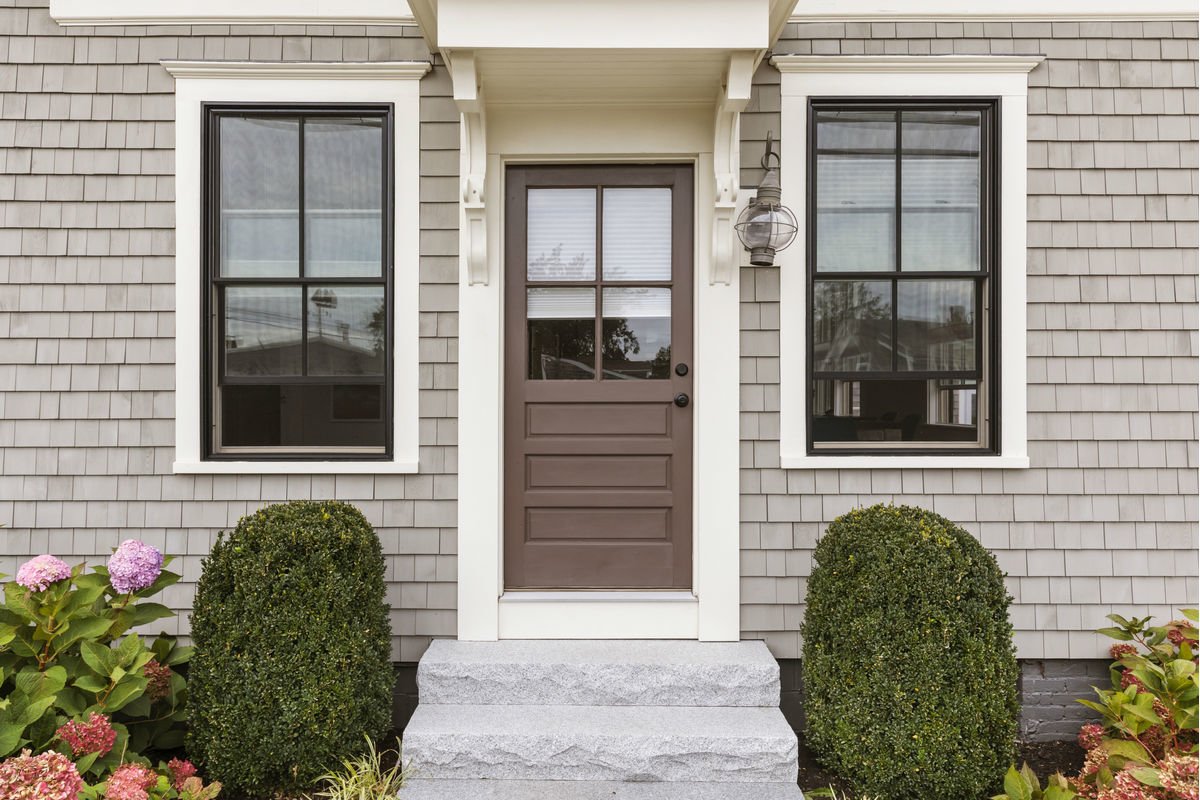
Replacement windows are highly recommended as a home improvement project with a significant return on investment. Not only that, a windows upgrade adds to the comfort level of the home — when the windows are energy-efficient — and gives a boost to its appearance.
Once you’ve decided to tackle window replacement, you’re faced with a variety of choices. Window frame material is one of the critical options before you and that is increasingly a choice between vinyl, or fiberglass or fiberglass composite.
Durability and Maintenance
Vinyl and Fiberglass Composite Windows have become more prevalent than wood windows in new construction and renovation in part because of the inert nature of each material. Vinyl and fiberglass don’t decay and insects aren’t attracted to either material. Wood is an organic material that eventually rots; it’s also subject to insect infestation, with detrimental effects to the frame.
Maintenance demands for vinyl and fiberglass are on the low end of the spectrum, mostly requiring hosing off and scrubbing the frames with soap and warm water. Fiberglass frames require more maintenance than vinyl since they need to be repainted periodically.
Lifespan
According to a 2007 study, fiberglass is estimated to last 38 percent longer than vinyl — a good quality vinyl window is rated for up to 30 years, while a fiberglass window is expected to last for about 50 years.
Fiberglass fibers in the frame expand and contract at the same rate as the glass. That reduces the chance for seal failure, which is the main cause of condensation and fogging of the insulated glass unit. Vinyl windows have welded corner seams, where seal failure is most common.
Fiberglass is stronger and more rigid than vinyl — the frames don’t warp or twist. Fiberglass is also about eight times stronger than vinyl, although that attribute isn’t as important in windows as it is for other parts of the building, since they don’t provide structural support.
Heat has an adverse effect on vinyl, which can soften to the point of melting in high temperatures, leading to distorted and warped frames that place additional stress on the seal.
AMSCO and Cascade Windows are fabricated using advanced vinyl technology that results in frames that are more stable and resistant to climate extremes. Both companies increase the integrity of the seal with warm edge spacer technology to reduce thermal transfer and condensation.
Energy-Efficient Windows
Both vinyl and fiberglass frames have insulating value, with transmission of thermal energy slowed by hollow cavities — similar to a honeycomb — incorporated into the design. Fiberglass is rated approximately 15 percent higher in energy efficiency than vinyl, partly because of reduced expansion and contraction, and because fiberglass and fiberglass composite frames don’t transmit heat or cold.
The stability of fiberglass frames means the entire window system and weatherstripping remains airtight and resists moisture infiltration. Fiberglass also provides insulation from noise transmission to a higher degree than vinyl.
Finishes
Generally, more options for finishes are available with fiberglass windows, since the frames can be painted. Fiberglass frames can also be fabricated with a wood veneer on the interior side of the window.
The color for vinyl window is injected all the way through the frames and can’t be altered. While that eliminates the need to repaint, the options for color in vinyl windows is generally limited to light colors, such as white, almond, and taupe.
AMSCO Windows has expanded the traditional neutral color palette with several rich hues, available in the Renaissance and Artisan Series lines. The company’s patented vinyl formula produces exceptional color retention for all its vinyl windows.
Cost
Vinyl windows cost significantly less than fiberglass — up to 50 percent less, according to Remodeling Calculator. That doesn’t include the cost of dismantling the existing window, framing, interior trim, molding, and decorative fittings. Other features increase to the cost for both types of frames, such as custom configurations, special glass coatings, and accessories.

